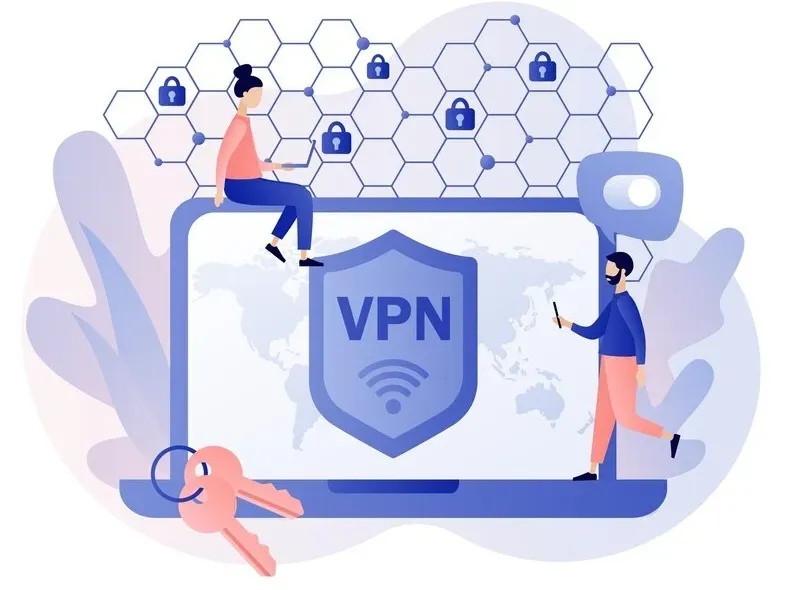
Staying one step ahead of hackers is critical to secure your precious data. Hackers have a plethora of methods to make you their target, ranging from phishing efforts to DDoS assaults. So, what are the most excellent tools for protecting oneself from these hacker attempts?
A VPN extension can provide you with comprehensive security against hackers. It will conceal your actual IP address while also encrypting your internet activity.
So, what can a VPN do?
Virtual Private Networks (VPNs) provide anonymous internet access by routing and encrypting traffic through servers located outside of the user's local network. VPN technology may get quite sophisticated, but it is an arbitrator between your device and the open web.
Among their many applications, VPNs can help you circumvent restricted content, encrypt your data, assist in bypassing firewalls, protect browser history, help to accelerate internet connections, and guard against cybersecurity assaults.
The latter is what this article will concentrate on. However, it is vital to realize that VPNs are not designed just for security. They serve hundreds of purposes and are a significant element of the worldwide privacy and security debate — as well as the daily lives of millions of individuals.
Common cyber attacks - VPNs can prevent
Hackers are constantly devising new methods to obtain important information, from accessing public Wi-Fi networks to initiating phishing campaigns.
VPNs may avoid an expanding number of frequent cyber attacks due to their encryption power and a rising number of security features. Let's examine some of the most common hacks that VPNs can avoid.
- Man-in-the-Middle attacks
Man-in-the-middle (MITM) attacks are most common on open networks such as free public Wi-Fi. To carry out this attack, a hacker places himself between you and the information you're accessing online. Hackers are ready to intercept data When they see what you're doing.
A VPN can help protect you from Man-in-the-Middle attacks. Your activity is encrypted when you use a VPN to connect to public Wi-Fi. With VPN encryption, a hacker cannot eavesdrop on your data because it is not accessible to anybody.
- Malware
Malware exists in a variety of forms. It may quickly infiltrate your system when encountering pop-up advertising, visiting strange websites, or downloading an unexpected file.
A VPN isn't meant to prevent viruses from infiltrating your device. However, many of the market's leading VPNs are beginning to integrate ad blockers. While not as comprehensive as antivirus software, these programs help protect you from pop-up advertising, trackers, and other online risks.
- DDoS attacks
Distributed Denial of Service (DDoS) assaults can block web pages by flooding them with artificial bot traffic. Botnets are created by hackers infecting a large number of devices. They will then utilize this network to attack the target with bot traffic.
The target will be so overrun with bot traffic that average users will be unable to access it. While DDoS assaults can be directed against large targets, they can also be directed toward gaming platforms, financial sites, and online companies.
Given that a VPN conceals your IP address, it helps avoid DDoS attacks. A DDoS attack can only correctly target you if it has access to your actual network location.
- Phishing
Anyone online could end up a victim of a phishing assault, but these can be easily prevented with a bit of foresight.
Phishing attacks will try to fool people into providing personal information. They may try to persuade you to download an app that collects payment information or to go to a website where you must enter sensitive information.
While it is your responsibility not to give up private data freely, VPNs can assist you in avoiding these assaults in the first place. Their ad blockers can keep you from seeing pop-up adverts and harmful websites where phishing attempts occur.
- Public hotspots
Free Wi-Fi might be a welcome relief if you're running low on data. Unfortunately, it is far more dangerous than that. A hacker can easily intercept your internet activities if the connection is not secured.
Fortunately, a VPN is an excellent means of protecting oneself using public Wi-Fi. Whenever you connect to an open Wi-Fi network over an encrypted VPN tunnel, your data becomes unreadable to anybody else. Most VPNs utilize military-grade encryption that might take years to crack with current technology.
Wrapping up
A VPN is necessary in today's world to fight back against cyber attacks. Even with a VPN, you should always be vigilant - Look out for signs your phone may be hacked and take measures to be safer about how you browse online.